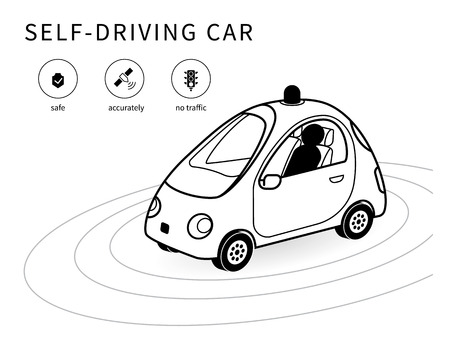Are Cars Getting Smarter?
Safe or smart driving technology is advancing at a rapid pace. Many companies are engaged in the race to create the first fully autonomous driving vehicle. There has even been news that Uber is testing a fully autonomous car on the streets of Pittsburgh. Google has been testing a fully autonomous vehicle (with a human driver in the vehicle in the event of an emergency) on the roads of California for some time now. However, even short of the fully autonomous vehicles that Uber, Google and multiple other companies are in the race to create, many other automobile manufacturers are including other forms of “smart” driving technology in their vehicles. These new smart features are billed as reducing a motorist’s chances of becoming involved in an accident and correspondingly reducing the injuries and deaths associated with traffic accidents. Fewer accidents and injuries is always good news. Nevertheless, it remains to be seen whether all of the new smart innovations will truly result in fewer accidents, injuries and deaths on the road.
A Recent Accident Proves Smart Technology Does Not Remove the Danger from Driving
No matter what advancements are made, there are limits to how much safer our roads will be with cars that have smart technology or are self-driving. A recent accident here in Florida provides a perfect example. In that accident, which occurred on a state highway near Williston in the central part of the State, a driver of a Tesla Model S collided with a tractor-trailer while his car’s self-driving or Autopilot feature was engaged. Although the National Highway Traffic Safety Administration’s investigation into this incident is ongoing, many questions have been raised as to whether the technology being developed by Tesla and other companies is truly as safe as advertised. (Tesla CEO Elon Musk boasted at a conference in April 2016 that a driver’s chances of being in an accident were 50 percent lower while the Autopilot feature was engaged). One Tesla Model S owner who had previously used the vehicle’s Autopilot feature was quoted by the New York Times in an article regarding the Williston accident as stating that the Autopilot feature in the Model S “gives you a false sense of security,” and that “You get comfortable and think you can take your hands off the wheel, but you really can’t.”
Smart Technology Will Not Remove All Dangers from Driving or Result in Fewer Lawsuits
A question raised in the new York Times article and an issue that will bear upon the future legal landscape in Florida relating to automobile accidents is what effect the advent of this smart technology will truly have with respect to the number of automobile accidents that occur. The driver of the Model S in the New York Times article cited above had previously posted multiple videos to YouTube of himself operating his Model S while it was in Autopilot mode. Many articles addressing the issue note some other automobile manufacturers are taking a more incremental approach by introducing smart features to their new models like adaptive cruise control that reacts to road conditions and other drivers, lane-keeping technology that causes the car to maintain its position in a lane even on a curving or winding road and automatic braking. This technology allows drivers to take their hands off the wheel and eyes off the road, but does not solve the fundamental problem associated with smart technology: automobiles are not at a point where drivers can simply get into a car, let the car take control and fail to pay attention to the road completely. Instead, the future is likely to include lawsuits relating to automobile crashes due to an over-reliance by drivers on smart technology. Indeed, although much of this smart technology has great promise, if it results in drivers believing they need not pay attention to the road at all, it could result in more, not fewer, accidents and consequently in more, not fewer, injuries, deaths and lawsuits as a result of those accidents. These lawsuits may be different than the current legal landscape in that there may be more lawsuits against the automobile manufacturers themselves rather than one driver suing another driver. Therefore, despite its promise, smart technology in automobiles is not guaranteed to reduce either the number of accidents or lawsuits.
Copyright: juliatim / 123RF Stock Photo





